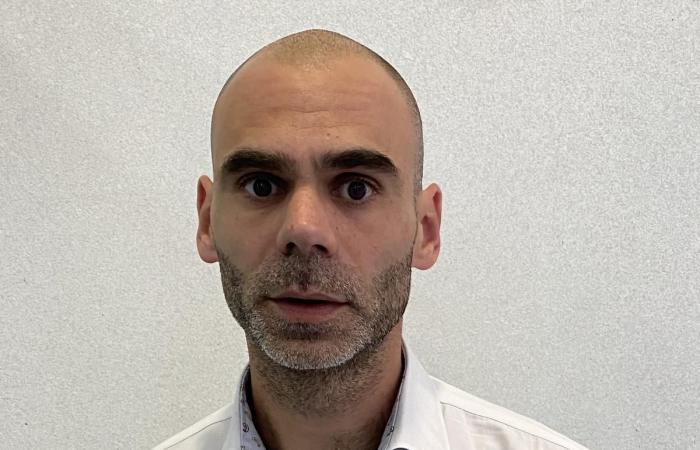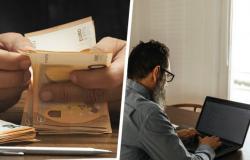We are raising our children to be “individuals who are psychologically weak, who lack general knowledge, who are navel-gazing and who are narcissistic,” warns Serge Dupont, PhD in Psychology (UCL), following his recent study on ‘the cult of the child.’
We adore our children, put them on a pedestal, put their interests above all else. But in doing so, we do them a disservice in the long run – ‘children like this have a hard time growing up’ – and the consequences are also disastrous for educators and society as a whole, says psychologist Serge Dupont. Together with UCL colleagues Isabelle Roskam and Moïra Mikolajcak, he wrote a paper in which they warn against the unintentionally disastrous consequences of what they call the ‘cult of the child’ and the ‘educational practices’ associated with it.
What exactly do you mean by the cult of the child?
Serge Dupont: For centuries, children were seen as inferior creatures, brimming with vices. They had to be corrected in order to become full human beings and free them from their bestial nature. With philosopher and educator Jean-Jacques Rousseau you see a radically new approach emerging. For him it is the adult who is depraved, and the child, still closely connected with nature, is innocent and pure. You have to cherish those original qualities. Rousseau’s vision will be confirmed in romanticism. In the course of the 20th century, the interests of the child will increasingly be cast into laws and treaties, such as the International Convention on the Rights of the Child, the ban on the so-called corrective tap in many countries, the ban on smoking among children, or recently in the Wallonia-Brussels federation, the ban on collective punishment at school. What we call the cult of the child is that you put the child at the center of every moment. This cult is expressed in new educational practices. Think of the European recommendations related to positive parenting: parents should always listen to their children, starting from their individual interests. In schools, teachers are asked to consider each child’s needs as much as possible, to create a safe emotional framework, and so on.
Parents and teachers can’t handle it anymore.
Many people will call that progress.
Dupont: Very sure, but we think the pendulum is swinging.
How do you see that?
Dupont: For starters, children today are extremely protected. For example, far fewer children go to primary school alone, on foot or by bicycle than in the past. We rely here on studies by geographers, who show that children are disappearing from the streets. In addition, it is increasingly considered normal to always and immediately listen to children, and to fulfill all their wishes. Suppose adults are having a conversation and a child joins them. Then adults often stop talking right away to listen to the child. In the past, adults would often just ignore the child. A final educational practice that stems from the cult of the child is lowering the demands. Many studies show that maintaining discipline, both within the family and at school, is disappearing in favor of practices called warmth or benevolence, but which also lower the bar for children.
What are the consequences?
Dupont: Possible consequences of overprotection are mental health problems, such as anxiety and depression. These children are less well equipped against the difficulties of life because their parents always try to solve all problems for them and overcome obstacles. Even as adults, they have it much harder, longitudinal studies show, because they’re just people who have a hard time maturing. They attribute their failures to factors outside themselves—it is always the fault of the others—and display traits of extreme individualism and narcissism. Which makes sense. A child who is constantly at the center of attention from birth, will later, as an adult, also see himself as the center of the world.
Do you think that more and more young people are struggling with mental problems because of their upbringing?
Dupont: For 15 years now, we have seen a rise in mental health problems among young people and all indicators related to depression, suicidal ideation, anxiety symptoms and loneliness skyrocket. It is precisely because our young people were already fragile that the pandemic has hit them so hard. Many studies point to the harmful effects of social media. We believe that this is also a result of changing parenting styles, at home and at school, which means that young people are no longer able to cope with the normal trials of life.
Apart from that, the cult of the child also leads to physical health problems. Because the children are too protected, they play outside less. If it used to be raining or cold, your parents would still send you out into the streets to play football. Today parents say: ‘You will get sick soon, stay inside.’ We have data from French cardiologists showing that compared to 40 years ago, children take one minute longer to run 600 meters – 4 minutes instead of 3. In other words, they have lost 25 percent of their cardiovascular capacity. With the risk of obesity, for example.
You also looked at the consequences at school?
Dupont: Indeed. There the cult of the child manifests itself in lowering the bar for pure knowledge and discipline. At school, too, everything revolves around listening to the needs of the child. But there is a fairly strong correlation between what is called student-centered learning – student-centered education – and declining school performance. But one example out of many is the international PIRLS study in 50 countries for reading comprehension among 10-year-olds. There, I looked it up for this conversation, Flemish children dangle at the bottom of the ranking. Or take the OECD’s TALIS study, which shows that if discipline is abandoned in the classroom, teachers have a much harder time. Here too, Flanders is at the bottom of the standings. Flemish teachers only spend 72 percent of their time teaching. The rest is maintaining order and administrative tasks.
Of course, causality is always complicated, but it is certain that the share of pure knowledge acquisition in the curriculum has decreased. Then you also know that the critical ability of students will decrease. This is an achievement in cognitive psychology: without culture and knowledge, criticism is impossible. I cannot criticize Marc Van Ranst, because I know nothing about virology.
But you can do that very well these days.
Dupont: (laughs) Also true, but what you see, on a pedagogical level, is that the teacher has taken on a different role. He has to step aside and become a facilitator who creates interesting activities, tries to interest students in something, rather than someone who teaches students in front of the class and insists on a good mastery of the subject matter. We have a lot of data in psychology that shows that if a student has to discover the material on their own, without the intervention of the teacher, that hinders the learning process, and the gap between privileged and non-privileged students widens.
For educators, always putting the child first also seems debilitating.
Dupont: Parents and teachers can’t handle it anymore. More and more is expected of them. They have to listen all the time, negotiate, set the rules together with children… In some families, parents are totally exhausted. We need to further investigate this connection, but that the cult of the child leads to parental burnout – and the number of parental burnout is very high in Belgium – seems to us a plausible hypothesis.
You don’t have to explain or justify everything to your child. You can just say: go to bed now, because you have to.
You even call the cult of the child a danger to democracy.
Dupont: The Greeks already knew that for a well-functioning democracy you need a critical mass of enlightened citizens who can put the common good first. But the cult of the child produces more individuals who are very far removed from that ideal of citizenship. Individuals who are not psychologically strong, who lack general knowledge, who are navel-gazing, and who are narcissistic. Such individuals are much more susceptible to charlatans and forces seeking to harm democracy. What we warn against in our paper is that by getting too close to the child, parents and teachers lose sight of the ultimate goal of parenting, which is to raise children to be critical citizens.
What would you recommend? I take it you don’t want to go back to authoritarian parenting models?
Dupont: Indeed, we certainly do not want to go back to the Victorian era or to parenting practices that we consider barbaric today. We do emphasize the importance of a strict, clear framework, which is of course also fair, it is not a question of arbitrary punishment. But a framework is essential for a child to grow up healthy. You don’t have to explain or justify everything to your child. You can just say: go to bed now, because you have to. The problem with the cult of the child is that parents are constantly explaining, discussing, negotiating.
So you’re arguing for strict rules, right?
Dupont: Yes, but you must combine that strict framework with the willingness to deviate from that framework when necessary, and to listen to the child’s desires. It’s about the balance. We see in developmental psychology, where we conduct long-term studies, that clarity and goodwill are natural allies. With only benevolence, the child is in a state of constant uncertainty. In addition, educators must adopt a long-term perspective. The immediate interests of the child, his needs and wishes of the moment, are not necessarily in the interest of the future adult, nor of society. So parents and teachers shouldn’t give in all the time. All the more so because our future adults will face major societal and climate challenges. So we have to think carefully: what kind of citizens do we want? It’s the same at school. You must continue to set high standards. Knowledge is essential. Intellectual baggage is required. And clear rules.







